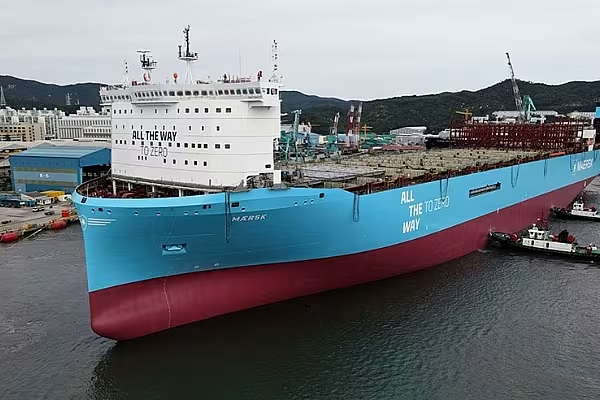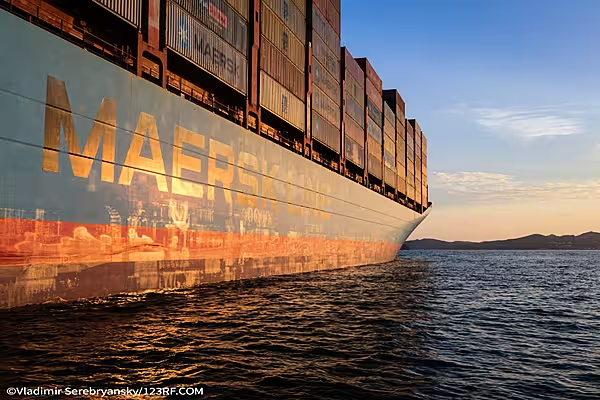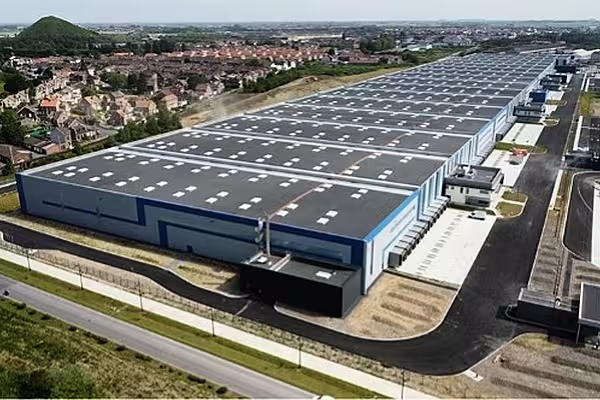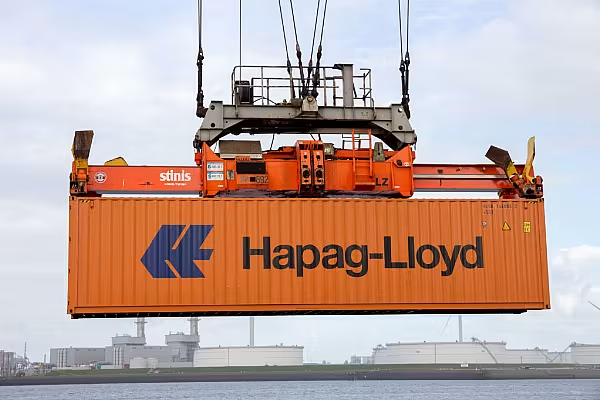Danish shipping group A.P. Moller-Maersk raised its full-year forecasts on the back of strong third quarter results, robust demand and the continuing disruption to shipping in the Red Sea.
Maersk said it had revised its outlook for global container market volume growth in 2024 to around 6% from a range of between 4% to 6% seen previously.
In August, the shipping giant said the global demand for container transport is expected to continue to grow in the next few quarters albeit at a slower pace amid substantial market risks.
Quarterly Highlights
Maersk reported preliminary underlying earnings before interest, tax, depreciation, and amortisation (EBITDA) of $4.8 billion (€4.42 billion) for the third quarter. Analysts had forecast EBITDA of $3.7 billion (€3.40 billion) for the period, according to LSEG data.
Revenue was $15.8 billion (€14.54 billion), beating the $14.4 billion (€13.25 billion) forecast by analysts.
Attacks on vessels in the Red Sea by Iran-aligned Houthi militants have disrupted a shipping route vital to east-west trade, with prolonged re-routing of shipments pushing freight rates higher and causing congestion in Asian and European ports.
Maersk now expects full-year underlying EBITDA of between $11.0 billion (€10.12 billion) and $11.5 billion (€10.58 billion), up from a previous range of $9 billion (€8.28 billion) to $11 billion (€10.12 billion), the group said.
Earnings before interest and tax for 2024 were meanwhile seen at between $5.2 billion (€4.78 billion) and $5.7 billion (€5.24 billion), up from $3 billion (€2.76 billion) to $5 billion (€4.60 billion) earlier.
Elsewhere, a study by autonomous shipping startup Orca AI showed that the global commercial shipping industry could cut down its carbon emissions by 47 million tonnes per year by deploying artificial intelligence for sea navigation.
The International Maritime Organisation aims to cut emissions by 20% by 2030, a target under threat from the ongoing Red Sea crisis.











